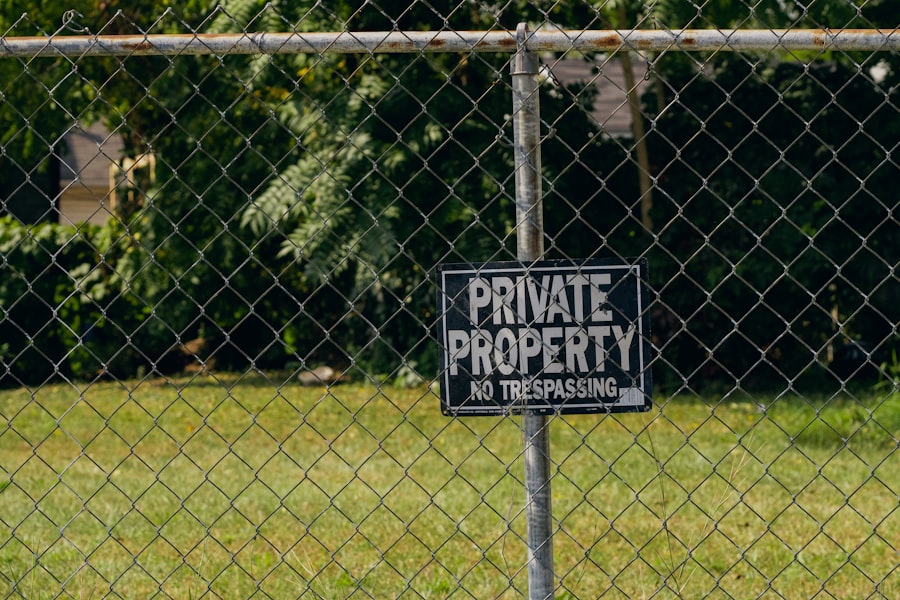In recent years, I have witnessed a troubling surge in real estate fraud, a phenomenon that has left many unsuspecting individuals vulnerable to deceitful practices. The allure of homeownership, often seen as the cornerstone of the American Dream, has unfortunately attracted a host of scammers eager to exploit the dreams and aspirations of others. As the housing market fluctuates and economic uncertainties loom, the prevalence of fraudulent schemes has only intensified.
I find it alarming that, according to various reports, billions of dollars are lost annually due to real estate fraud, affecting countless families and individuals who simply wish to secure a stable future. The rise of technology has also played a significant role in this increase. With the advent of online listings and digital transactions, I have noticed that scammers have become more sophisticated in their methods.
They can easily create fake listings, manipulate images, and even forge documents to make their schemes appear legitimate. This digital landscape has made it easier for fraudsters to reach potential victims, often without ever having to meet them in person. As I delve deeper into this issue, I realize that understanding the dynamics of real estate fraud is crucial for anyone looking to buy or sell property in today’s market.
Key Takeaways
- Real estate fraud is on the rise, posing a threat to homeowners and potential buyers.
- Scammers use deceptive tactics to trick vulnerable homeowners into fraudulent real estate transactions.
- Vulnerable homeowners are targeted through various means, including foreclosure rescue scams and equity skimming.
- Real estate fraudsters use shocking tactics such as identity theft and fake documents to carry out their schemes.
- Victims of real estate fraud suffer devastating financial and emotional impacts, often losing their homes and life savings.
The Deceptive Practices of Real Estate Scammers
As I explore the deceptive practices employed by real estate scammers, I am struck by the sheer creativity and audacity they display. One common tactic involves the use of fake listings for properties that are either not for sale or do not exist at all. Scammers often post attractive photos and descriptions online, luring potential buyers into a false sense of security.
When I see these listings, I can’t help but feel a mix of disbelief and concern for those who might fall prey to such schemes. The emotional toll on victims can be immense, as they invest not only their money but also their hopes and dreams into what they believe is a legitimate opportunity. Another alarming practice is the use of forged documents.
I have learned that scammers can create convincing contracts and title deeds that appear authentic at first glance. This level of deception can leave victims feeling helpless and confused when they discover that they have been duped. In some cases, I have seen individuals lose their life savings or even face foreclosure due to these fraudulent activities.
The psychological impact is profound; victims often experience feelings of shame and embarrassment, which can prevent them from seeking help or reporting the crime.
How Real Estate Fraud Targets Vulnerable Homeowners

Real estate fraud does not discriminate; however, I have noticed that certain groups are more frequently targeted than others. Vulnerable homeowners, particularly those facing financial difficulties or life changes such as divorce or job loss, often find themselves in precarious situations that make them prime targets for scammers. These individuals may be desperate to sell their homes quickly or may be seeking assistance in navigating complex financial situations.
Scammers exploit this vulnerability by offering seemingly easy solutions that ultimately lead to devastating consequences. I have also observed that first-time homebuyers are particularly susceptible to real estate fraud. With limited experience in the housing market, they may lack the knowledge necessary to identify red flags or suspicious behavior.
The excitement of purchasing a first home can cloud judgment, making it easier for scammers to manipulate emotions and create a sense of urgency. As I reflect on these dynamics, I realize that education and awareness are essential tools in protecting vulnerable populations from falling victim to these deceitful practices.
The Shocking Tactics Used by Real Estate Fraudsters
| Tactic | Description |
|---|---|
| Phantom Help | Fraudsters pose as legitimate professionals offering assistance with foreclosure or refinancing, but actually steal the victim’s home or equity. |
| Bait-and-Switch | Fraudsters promise a good deal on a property, but then switch the offer to something less desirable after gaining the victim’s trust. |
| Equity Skimming | Fraudsters target homeowners facing foreclosure, offering to pay off their mortgage and rent the property back to them, but then fail to make mortgage payments and pocket the rent. |
| Foreclosure Rescue | Fraudsters offer to help homeowners facing foreclosure, but actually trick them into signing over the deed to their home, then evict them and sell the property. |
The tactics employed by real estate fraudsters can be both shocking and disheartening. One particularly insidious method involves “property flipping,” where scammers purchase distressed properties at low prices, make minimal improvements, and then sell them at inflated prices without disclosing any issues to potential buyers. This practice not only deceives buyers but also undermines the integrity of the housing market as a whole.
I find it deeply troubling that individuals would exploit others’ dreams for personal gain in such a blatant manner. Another tactic that has caught my attention is the use of “phantom rentals.” In this scheme, fraudsters advertise rental properties that they do not own or manage, often using stolen identities or fake credentials to appear legitimate. When prospective tenants express interest, they are asked to pay deposits or application fees upfront, only to discover later that the property was never available for rent in the first place.
This tactic preys on individuals seeking affordable housing options, leaving them not only financially drained but also emotionally devastated.
The Devastating Impact of Real Estate Fraud on Victims
The impact of real estate fraud on victims is nothing short of devastating. As I speak with those who have experienced such deceit firsthand, I am struck by the emotional and financial toll it takes on their lives. Many victims report feelings of betrayal and anger, often directed not only at the scammers but also at themselves for being deceived.
The loss of hard-earned savings can lead to significant financial instability, forcing individuals and families into precarious living situations or even homelessness. Moreover, the psychological effects can linger long after the initial incident.
I have seen how this trauma can ripple through communities, as those affected share their stories and warn others about the dangers of real estate fraud. The collective impact is profound; it creates an atmosphere of fear and suspicion that can hinder economic growth and community cohesion.
How to Spot and Avoid Real Estate Fraud

As I navigate the complexities of real estate transactions, I have come to understand the importance of vigilance in spotting potential fraud. One key indicator is an offer that seems too good to be true; if a property is priced significantly lower than comparable homes in the area, it should raise immediate red flags. Additionally, I have learned to scrutinize listings carefully for inconsistencies in photos or descriptions, as these can often signal fraudulent activity.
Another crucial step in avoiding real estate fraud is conducting thorough research on any parties involved in a transaction. I always recommend verifying the credentials of real estate agents and brokers through reputable sources. Checking online reviews and seeking recommendations from trusted friends or family members can provide valuable insights into an agent’s reputation.
Furthermore, I have found that consulting with legal professionals before signing any contracts can help ensure that all documents are legitimate and protect against potential scams.
The Legal Consequences of Real Estate Fraud
The legal consequences of real estate fraud can be severe for those who engage in such deceptive practices. As I delve into this aspect of the issue, I discover that perpetrators may face criminal charges ranging from misdemeanors to felonies, depending on the severity of their actions.
However, I also recognize that legal recourse can be challenging for victims seeking justice. Many may feel overwhelmed by the legal process or unsure of where to begin when it comes to reporting fraud. It is essential for victims to document all interactions and gather evidence to support their claims.
By working with law enforcement and legal professionals, victims can navigate the complexities of the legal system and seek restitution for their losses.
Real Life Stories of Real Estate Fraud Victims
Hearing real-life stories from victims of real estate fraud has profoundly impacted my understanding of this issue. One story that stands out is that of a single mother who was excited to purchase her first home for her children. After finding what she believed was her dream house at an unbeatable price, she quickly made an offer without conducting thorough research.
Unfortunately, she later discovered that the property was already under contract with another buyer, leaving her devastated and financially strained. Another poignant story involves an elderly couple who fell victim to a scammer posing as a real estate agent. They were convinced to sell their home at a fraction of its value under the guise of a quick sale due to financial difficulties.
After realizing they had been duped, they faced not only financial loss but also emotional distress as they grappled with feelings of betrayal and regret. These stories serve as powerful reminders of the human cost associated with real estate fraud and underscore the importance of vigilance and education.
The Role of Law Enforcement in Combating Real Estate Fraud
Law enforcement plays a critical role in combating real estate fraud, yet I have come to understand that their efforts often face significant challenges. Many cases go unreported due to victims’ feelings of shame or fear of not being believed. As a result, law enforcement agencies may struggle to gather sufficient evidence to pursue investigations effectively.
However, when cases are reported, dedicated officers work tirelessly to uncover fraudulent schemes and bring perpetrators to justice. I have also learned about various task forces and initiatives aimed at addressing real estate fraud at local and national levels. These collaborative efforts often involve partnerships between law enforcement agencies, regulatory bodies, and community organizations focused on raising awareness about fraudulent practices.
By sharing information and resources, these groups strive to create safer environments for homebuyers and sellers alike.
Steps to Take if You Suspect Real Estate Fraud
If I ever suspect real estate fraud during a transaction, there are several steps I would take immediately to protect myself and others involved. First and foremost, I would document everything—keeping records of communications, contracts, and any suspicious activity is crucial for building a case if necessary. Next, I would reach out to local law enforcement or consumer protection agencies to report my suspicions; they can provide guidance on how best to proceed.
Additionally, seeking legal counsel is essential if I believe I have been targeted by a scammer or if I am unsure about the legitimacy of a transaction. A qualified attorney can help me navigate the complexities of real estate law and ensure my rights are protected throughout the process. Finally, sharing my experience with friends and family can help raise awareness about potential scams within my community.
The Importance of Educating Yourself About Real Estate Fraud
As I reflect on my journey through understanding real estate fraud, one truth stands out: education is paramount in preventing victimization. By arming myself with knowledge about common scams and red flags associated with fraudulent practices, I can better protect myself and others from falling prey to deceitful tactics. Attending workshops or seminars focused on real estate transactions can provide valuable insights into navigating this complex landscape safely.
Moreover, staying informed about current trends in real estate fraud is essential as scammers continually adapt their methods to exploit new technologies and market conditions. By regularly reading articles or following reputable sources on this topic, I can remain vigilant against potential threats while also sharing this knowledge with my community. Ultimately, fostering an environment of awareness and education is key to combating real estate fraud effectively and ensuring that homeownership remains a dream within reach for everyone.
In recent years, real estate fraud has become an increasingly concerning issue, with many individuals falling victim to scams that can lead to significant financial losses. A related article that delves into the intricacies of such fraudulent activities can be found on the website “Am I Wrong Here.” This article provides valuable insights into the common tactics used by fraudsters and offers advice on how to protect oneself from becoming a victim. For more detailed information, you can read the full article by visiting this link.
✅WATCH NOW! My Mother-in-Law’s Real Estate Heist Collapses Spectacularly
FAQs
What is real estate fraud?
Real estate fraud refers to any illegal activity that involves the buying, selling, or renting of property. This can include misrepresentation of property details, forging documents, or using deceptive practices to obtain money or property.
What are some common types of real estate fraud?
Common types of real estate fraud include mortgage fraud, foreclosure rescue scams, rental scams, and property flipping schemes. These can involve individuals or organized groups seeking to profit through deceitful practices.
How can I protect myself from real estate fraud?
To protect yourself from real estate fraud, it’s important to thoroughly research any property or investment opportunity, verify the legitimacy of the seller or landlord, and carefully review all contracts and documents before signing. Additionally, working with reputable real estate professionals and seeking legal advice can help prevent falling victim to fraud.
What should I do if I suspect real estate fraud?
If you suspect real estate fraud, you should report it to the appropriate authorities, such as the local police department, the Federal Trade Commission (FTC), or the Consumer Financial Protection Bureau (CFPB). It’s important to gather any evidence or documentation related to the suspected fraud to support your report.




